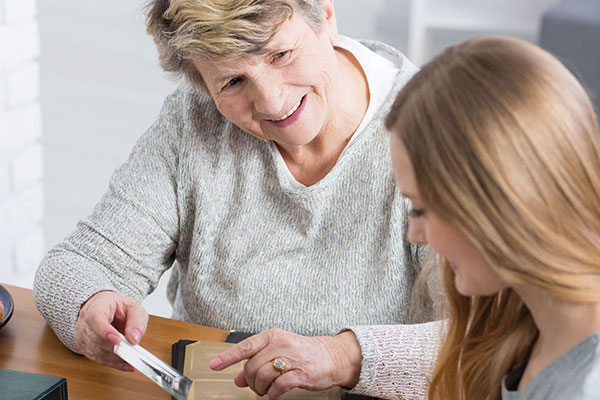Cancer Changes Our Lives – And Our Relationships
Tips for Managing Interpersonal Relationships after a Cancer Diagnosis
by Ruth Oratz, MD, FACP
More than 15 million Americans today are living after a cancer diagnosis, coping with the consequences of the illness itself as well as the aftereffects of treatment. For each of those individuals, there is a web of people who also feel the ripple effects of the disease: family, friends, coworkers, communities. Though these millions of relationships are all unique, there are some universal steps every cancer survivor can take to manage the impact their cancer diagnosis has on their personal relationships.
Intimate Relationships
Cancer treatment can create barriers that make it difficult to maintain an emotional and sexual connection with your romantic partner. For example, the physical and functional changes your body undergoes during cancer treatment can negatively affect your body image or can lessen your desire for intimacy.
Be open with your loved one about your concerns. And understand that your partner may also feel uneasy and may be worried about causing physical or emotional distress for you. However, working through this journey together can strengthen your emotional bond. Share what makes you comfortable or uncomfortable when it comes to intimacy. Also, talk to your doctor about how cancer and its treatment are affecting your sex life and sexual function. Your doctor can work with you to resolve any physical issues that may make intimacy more difficult.
Your Children
No matter how old a child is, having a parent diagnosed with a serious illness is scary and upsetting. Cancer and cancer treatment will undoubtedly alter everyday life in your home. Do not try to hide this from your children. The unknown or unspoken is often more terrifying than the reality.
Depending on your child’s age and ability to comprehend what’s going on, you should provide honest, appropriate information in language they can understand. Let your children know you love them and are still present even if you must sometimes change up the daily routine. Reassure them as you allow others to assume some of the responsibilities of childcare.
Don’t feel pressured or obligated to discuss details of your diagnosis or your treatment with anyone. It’s OK to politely, but firmly, thank others for their concern and emphasize that you prefer not to discuss certain personal details.
Make sure teachers, guidance counselors, coaches, and anyone else who works with your children are informed about what’s going on. They can step in with extra emotional support and keep an eye out for signs that your child might be struggling at school.
If you have older or adult children, they may want to support you and the rest of the family by helping around the house. Let them. It can give them a sense of purpose and control, as well as help them feel more connected to you.
Elderly Parents
Telling a parent that you have cancer is stressful, particularly so if you’ve taken on a caregiving role for an aging parent. For many cancer survivors, it may be difficult to feel like you are burdening your mother or father with the knowledge that you are ill or undergoing treatment.
Depending on your parent’s physical, emotional, and cognitive condition, consider sharing information in a way that makes sense for both of you. If possible, enlist other family members, friends, or caregivers to help share some of the caretaking responsibilities so you can focus on your health. Discuss any variation in the routine with your parent so that they are not alarmed or worried.
Also, keep in mind that your parents may want to help support you through cancer. If that is realistic, try to be open to it.
Coworkers
Cancer and cancer treatment can affect how you function at work. You will likely miss time for doctor’s appointments and for treatment. You may need extra days off to recover from side effects or to deal with fatigue. Ask your healthcare team to explain the details of your treatment, including the number of clinic visits you’ll need to schedule, the length of time each treatment will last, and which side effects to expect and how to manage them. Then, let them know what your job entails so you can come up with a treatment schedule that will interrupt your normal routine as little as possible.
Whom to tell and how much to tell about your cancer diagnosis will vary depending on the structure of your workplace. Informing your coworkers about your diagnosis can allow you to have transparency and find ways to work together and share responsibilities. However, not all coworkers will be receptive to this kind of collaboration, and not all workplaces are set up to handle it. Use your best judgment to decide what will work best for you and your situation.
You may, however, inform your direct supervisor or human resources department about your situation. They can provide you with necessary information about insurance and other benefits offered by your employer, including short-term or long-term disability if needed. They can also help in making reasonable accommodations or designing a flexible work schedule so you can continue working during cancer treatment.
Social Circles
Extended family, friends, neighbors, and other members of your community will probably hear about your diagnosis. Most will be sympathetic and want to help in some way. It’s best if you are the one who is in control of the flow of information and the message surrounding your health. Trying to keep all knowledge of your diagnosis a total secret is often quite difficult and may lead to unwanted gossip. Start by telling those closest to you – those who are most likely to be positive and helpful.
Gradually, you may wish to let others know, or ask your closest friends to inform others, sharing only as much information as you are comfortable. Sometimes, well-intentioned people will want to offer advice or may ask a lot of questions. This can be overwhelming or upsetting. Don’t feel pressured or obligated to discuss details of your diagnosis or your treatment with anyone. It’s OK to politely but firmly thank others for their concern and emphasize that you prefer not to discuss certain personal details. You may find it helpful to appoint a family member or other trusted person as your spokesperson. This person can communicate the information you wish to share, as well as manage the messages that well-wishers send.
Managing your personal relationships during cancer and beyond is a unique challenge. Give yourself time to reflect on what each relationship means to you and how your interactions with others can become more meaningful. Open communication and honest dialogue are the keys to enhancing your personal relationships, allowing you to draw comfort and strength from your loved ones during this challenging time.

Dr. Ruth Oratz is clinical professor of Medicine at New York University School of Medicine, NYU Langone Health, where she practices and teaches. She is a medical oncologist specializing in the care of people with and at risk for breast cancer. She is especially committed to helping the individual with cancer continue to live life actively and fully, placing significant attention on flexible treatment programs that address concerns about career, family life, relationships, and sexuality. In addition, Dr. Oratz is president of the Advisory Board of the Bellevue Literary Review, a journal that publishes fiction, nonfiction, and poetry, cultivating the humanistic side of medical practice; is an advisor to several national advocacy organizations; and is a local and national speaker and healthcare educator.
This article was published in Coping® with Cancer magazine, March/April 2019.


